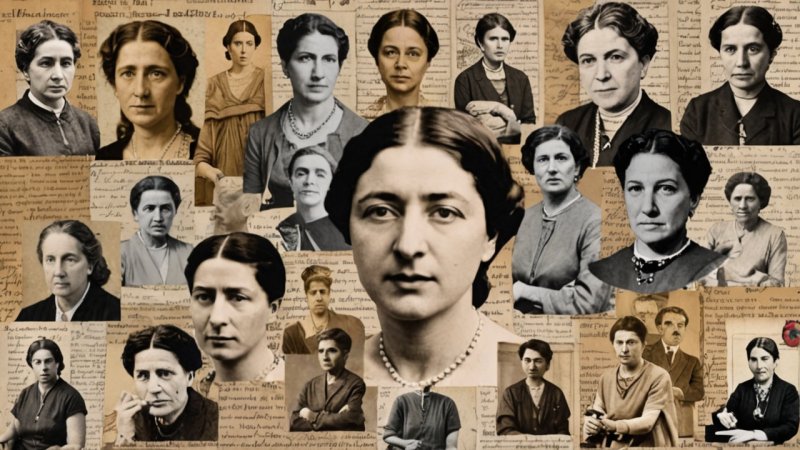Throughout history, philosophy has often been perceived as a male-dominated field, overshadowing the significant contributions made by women. However, the role of women in philosophy is rich and varied, influencing key ideas and movements across centuries. This article explores the crucial impact women have had on the evolution of philosophical thought, highlighting their contributions, challenges, and the recognition they deserve.
Early Voices: The Pioneers of Thought
Women like Hypatia of Alexandria and Simone de Beauvoir were among the first to challenge prevailing philosophical ideas. Hypatia, a mathematician and philosopher in ancient Egypt, is often credited with advancing Neoplatonism and science. Her tragic death marked a turning point, illustrating the dangers faced by women in intellectual pursuits. Similarly, Simone de Beauvoir's seminal work, "The Second Sex," laid the groundwork for feminist philosophy, arguing that one is not born a woman but rather becomes one through societal constructs.
19th Century: Expanding Horizons
The 19th century saw an increase in women's participation in philosophical discourse. Figures like Mary Wollstonecraft and Harriet Taylor Mill advocated for women's rights and education. Wollstonecraft's "A Vindication of the Rights of Woman" was revolutionary, arguing for women's rationality and capability. Harriet Taylor Mill collaborated with her husband, John Stuart Mill, to promote utilitarianism and women's suffrage, demonstrating that women's voices were essential in shaping ethical and political philosophy.
20th Century: Feminist Philosophy Emerges
The emergence of feminist philosophy in the 20th century marked a significant shift in philosophical inquiry. Thinkers like Judith Butler and bell hooks challenged traditional gender norms and explored the intersectionality of race, gender, and class. Butler's concept of gender performativity has influenced contemporary discussions about identity, while hooks emphasized the importance of love and justice in social movements. Their works have paved the way for a more inclusive understanding of philosophy.
Contemporary Contributions: Diverse Perspectives
Today, women philosophers are at the forefront of various philosophical discussions, contributing to ethics, epistemology, and political theory. Figures like Martha Nussbaum and Angela Davis are redefining philosophical inquiry by integrating personal experiences and social justice into their work. Nussbaum's capabilities approach emphasizes human dignity, while Davis's work on prison abolition challenges systemic injustices. These contemporary thinkers illustrate the diverse perspectives women bring to philosophy.
Challenges and Recognition: Ongoing Struggles
Despite their contributions, women in philosophy continue to face challenges, including underrepresentation in academic institutions and philosophical discourse. Initiatives like the "Women in Philosophy" conferences and organizations aim to highlight women's work and promote inclusivity. Recognizing historical figures and their contributions is essential for addressing the gender imbalance in philosophy and inspiring future generations of women thinkers.
In conclusion, the role of women in the history of philosophy is both profound and transformative. From early pioneers to contemporary thinkers, women have shaped philosophical discourse and challenged societal norms. Acknowledging their contributions not only enriches our understanding of philosophy but also paves the way for a more inclusive future in intellectual pursuits.






